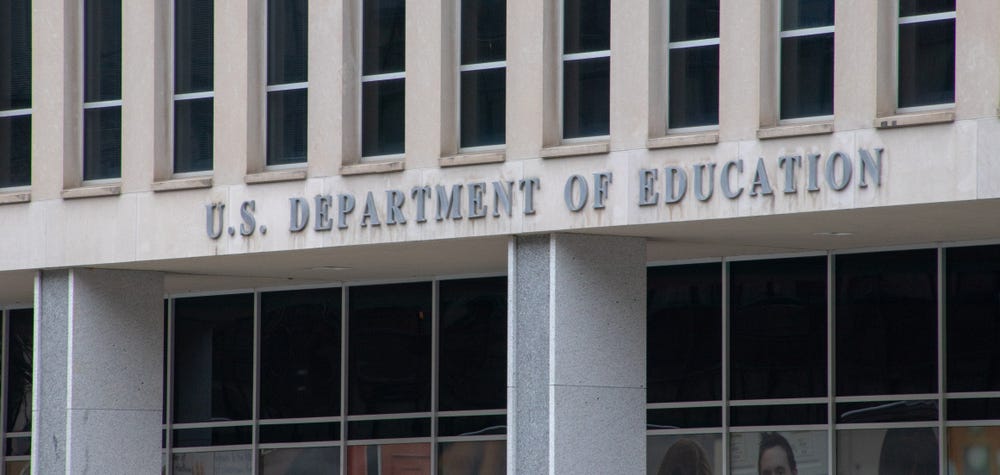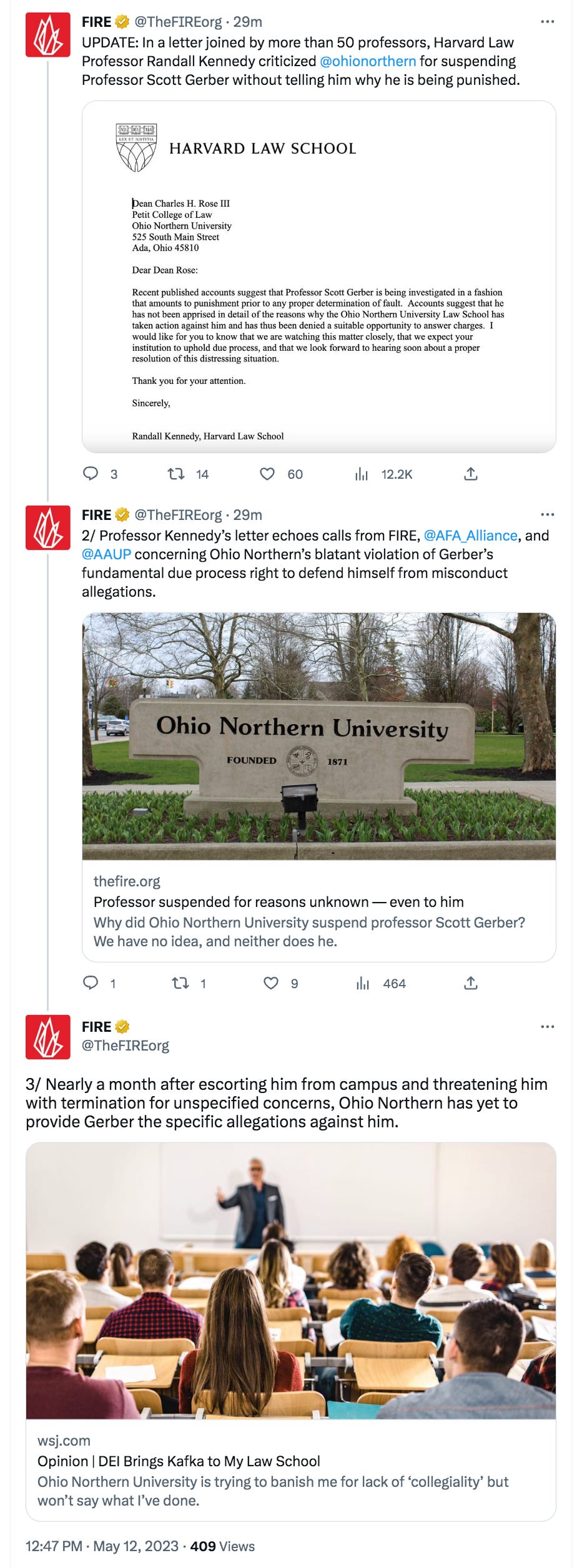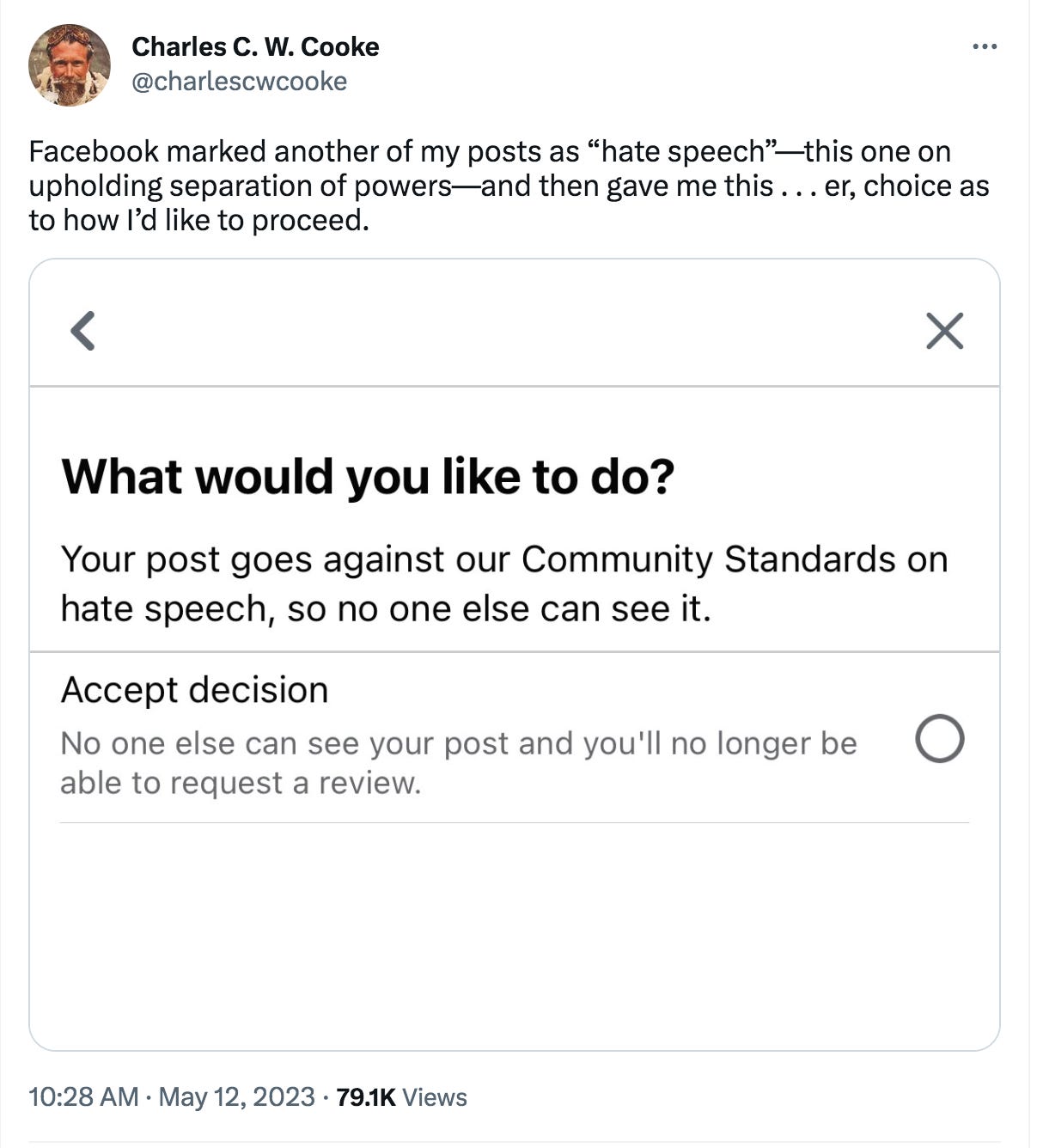E-Pluribus | May 12, 2023
Colleges should celebrate graduations, not segregations; one cheer for the Department of Education; and learning from empires; yes, the bad they did, but also the good.
A round-up of the latest and best writing and musings on the rise of illiberalism in the public discourse:
Samuel J. Abrams: Stop Segregating Students
While a quote from a recent Inside Higher Education article called affinity graduations “beautiful, culturally specific celebration[s],” Samuel Abrams of the American Enterprise Institute has a more succinct description: segregation. Rather than slowly petering out as society has gotten more diverse and tolerant, such “affinity graduations” (“racial, ethnic, cultural, sexual and others”) are becoming more common and in Abrams’s view, contributing to more division.
With graduation just around the corner, Inside Higher Education recently reported on a disturbing trend at many of our nation’s colleges and universities: affinity graduation celebrations. These are separate commencement ceremonies that are intended to “honor the achievements of students of various identities—racial, ethnic, cultural, sexual and others—who may receive stoles or cords representing their identity that they can wear at graduation, or a certificate to hang beside their diploma.” While these events may seem like a nice way to celebrate diversity, these exclusionary ceremonies are divisive. Rather than sending students off with a message of common good, affinity graduations do the exact opposite: They send our undergraduates a dangerous message latent with identity politics and division rather than unity and shared experience and community.
The problem with these graduations is that they have become activities run by diversity, equity, and inclusion (DEI) offices rather than student-run or privately organized celebrations. Harvard University, for instance, is quick to note that these celebrations are run by its Office of Equity, Diversity, Inclusion, and Belonging. The Harvard DEI office points out that each “affinity celebration started as a student-led effort” but now—as of 2022—“the various ceremonies were centralized under the guidance and support of the Office for Equity, Diversity, Inclusion, and Belonging.” Moreover, the office’s web page sends an unambiguous message that today there is university-wide support and inertia behind these special ceremonies: “These University-wide celebrations are made possible by the collaboration of the Office for Equity, Diversity, Inclusion, and Belonging; the DIB Leadership Council; the Council of Deans of Students; the Commencement Office; and students.”
If graduates and their families want to gather around and celebrate various traits, that is welcome. However, affinity graduations are now under the purview of DEI administrators, who are known to promote divisive political messages that are hypocritical to their pursuit of inclusion, and receive financial and administrative support. This sends an unmistakable message to graduates, their families, and the world: Some groups are different and deserve alternative treatment, and that we should focus on what divides us rather than what unites us.
Read the whole thing.
Stanley Goldfarb and Mark J. Perry: The Education Department Helps Combat Woke Discrimination
Affinity graduations are only one part of modern-day segregation on college campuses; they are part of a larger trend that divides students by race, ethnicity, gender, and other factors. Somewhat surprisingly, Stanley Goldfarb and Mark Perry write in the Wall Street Journal, the Department of Education is taking a stand against some of the applications of this movement as civil rights violations.
[S]o-called racial affinity groups [are] a common woke initiative. These segregated entities, which many campuses have attempted to introduce, are open only to students of a specific race. An April article in the New England Journal of Medicine praised the separation of medical students by race while calling for the establishment of white-only affinity groups whose members would be “held accountable.” The authors also cast affinity groups for black medical students as protecting them from “otherwise-common denial, gaslighting . . . and White fragility.” This toxic language harks back to segregationists’ claims that separating whites and blacks benefitted both groups.
[. . .]
All told, we have submitted federal civil-rights complaints for race- and sex-based discrimination at more than 100 medical schools, leading the Office for Civil Rights to open at least 25 formal federal investigations so far. To date, almost a dozen medical schools have abandoned their racially discriminatory woke programs, most recently at the University of Minnesota Medical School, which removed illegal criteria for an award for graduating medical students.
Why is the Office for Civil Rights standing strong against woke demands, especially when other federal agencies are doing activists’ bidding? We suspect that many if not most of the OCR staff are sympathetic to DEI. Yet the laws they uphold couldn’t be clearer that racial discrimination is illegal, and ignoring or slow-walking complaints could subject them to public criticism and legal challenges.
It also helps that the Education Department allows any individual or organization to submit civil-rights complaints to OCR, not only victims of discrimination who would have legal standing to sue. That’s not the case at similar offices at agencies such as the Department of Health and Human Services and the Equal Employment Opportunity Commission. In the context of medical schools and hospitals—our organization’s focus—these agencies require faculty or students who have encountered discrimination at their institutions to file complaints under their name. Such victims are understandably reluctant to open themselves up to withering criticism and retaliation from their mostly woke peers, faculty and administrators.
Read it all here.
Nigel Biggar: A Mixture of Pride and Shame
University of Oxford professor Nigel Biggar does not shy away from the faults of the storied, centuries-long British empire, but neither does he believe in blanket condemnations. For his efforts to present all aspects of the colonialism of the island nation in a historical context, Biggar found himself the target of widespread denunciation by others in his field. While his essay at Quillette is not for the casual reader, his take on the reasons for all the pushback is worth considering.
[W]hatever its intellectual merits, academic “post-colonialism” is not just of academic importance. It is politically important, too, insofar as its world view is absorbed by student citizens and moves them to repudiate the dominance of the West.
Thus, academic post-colonialism is an ally—no doubt, inadvertent—of Vladimir Putin’s regime in Russia and the Chinese Communist Party, which are determined to expand their own (respectively) authoritarian and totalitarian power at the expense of the West. In effect, if not by intent, they are supported by the West’s own hard Left, whose British branch would have the United Kingdom withdraw from NATO, surrender its nuclear weapons, renounce global policing, and retire to free-ride on the moral high ground alongside neutral Switzerland. Thinking along the same utopian lines, some Scottish separatist-nationalists equate Britain with empire, and empire with evil, and see the secession of Scotland from the Anglo-Scottish Union and the consequent break-up of the United Kingdom as an act of national repentance and redemption. Meanwhile, with their eyes glued to more domestic concerns, self-appointed spokespeople for non-white minorities claim that systemic racism continues to be nourished by a persistent colonial mentality, and so clamour for the “decolonisation” of public statuary and university reading lists.
In order to undermine these oppressive international and national orders, the anti-colonialists have to undermine faith in them. In his novel The Man Without Qualities, which lay unfinished at his death in 1942, Robert Musil mused on the decline of the Austro-Hungarian Empire before the First World War: “However well founded an order may be, it always rests in part on a voluntary faith in it … once this unaccountable and uninsurable faith is used up, the collapse soon follows; epochs and empires crumble no differently from business concerns when they lose their credit.” One important way of corroding faith in the West is to denigrate its record, a major part of which is the history of European empires. And of all those empires, the primary target is the British one, which was by far the largest and gave birth to the United States, Canada, Australia, and New Zealand. This is why the anti-colonialists have focused on slavery, presenting it as the West’s dirty secret, which epitomises its essential, oppressive, racist white supremacism. This, they claim, is who we really are. This is what we must repent of.
Politically, this makes good sense. If you want to make others obey your will, it is surely useful to subvert their self-confidence and exploit their guilt.
Read it all.
Around Twitter
Via the Foundation for Individual Rights & Expression, an update (which is not much!) on the case of Scott Gerber, whose recent Wall Street Journal essay we included in Wednesday’s round-up:
Here’s a thread from Shadi Hamid, who’s not one to shy away from disagreement or criticism. Mustafa Akyol wrote a review of Hamid’s latest book, and Hamid uses Akyol’s review to explain some of their differences:
And finally, via Charles C. W. Cooke, here’s “choice,” Facebook censor style:










